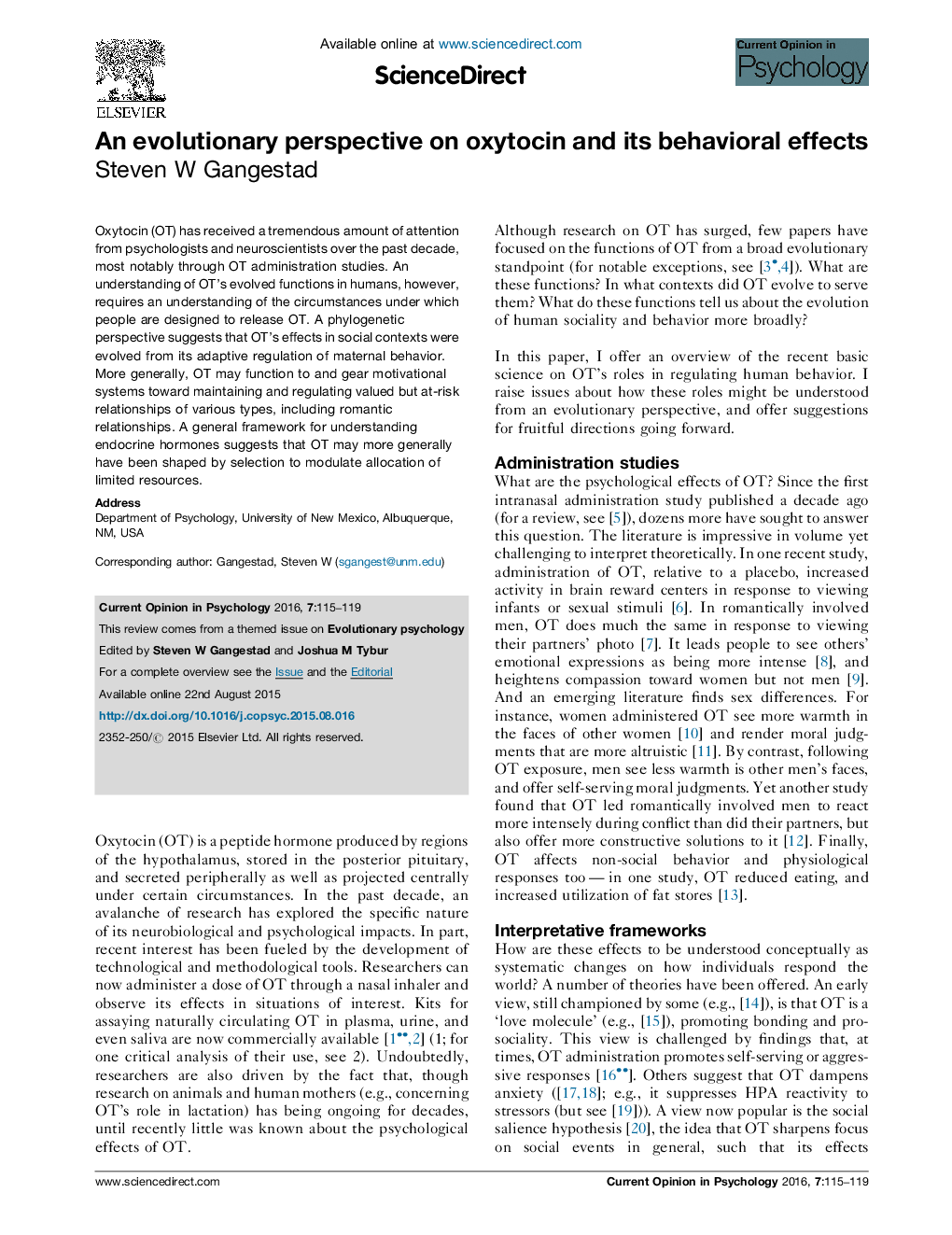| Article ID | Journal | Published Year | Pages | File Type |
|---|---|---|---|---|
| 879366 | Current Opinion in Psychology | 2016 | 5 Pages |
•A number of theories have been proposed to account for the effects of oxytocin.•The circumstances in which oxytocin is released are also key to an understanding of function.•Oxytocin's psychological effects likely evolved through cooption of effects on mothers.•Oxytocin may gear attention and motives toward at-risk but valued relationships.•Oxytocin may more generally modulate how an organisms resources are utilized.
Oxytocin (OT) has received a tremendous amount of attention from psychologists and neuroscientists over the past decade, most notably through OT administration studies. An understanding of OT's evolved functions in humans, however, requires an understanding of the circumstances under which people are designed to release OT. A phylogenetic perspective suggests that OT's effects in social contexts were evolved from its adaptive regulation of maternal behavior. More generally, OT may function to and gear motivational systems toward maintaining and regulating valued but at-risk relationships of various types, including romantic relationships. A general framework for understanding endocrine hormones suggests that OT may more generally have been shaped by selection to modulate allocation of limited resources.
